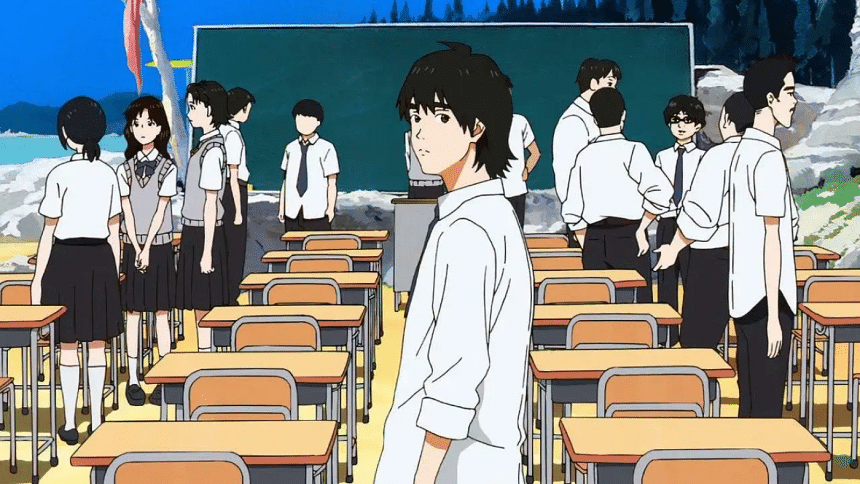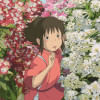Sonny Boy is the best of what anime has to offer

In today's anime industry, commercialised shows crunched out solely for generating sales and making money are the norm. Thankfully, Sonny Boy, an anime original directed by the lauded director Shingo Natsume, is breaking said norm.
Sonny Boy tells the story of a class of 9th graders who suddenly go adrift in perpetual nothingness. Some of them start developing supernatural abilities and, in the absence of adults and authority figures, various conflicts over dominance and power start arising.
The show is unconventional, to say the least. It features an almost elegiac narrative that's rich in philosophical ponderings and values that feel more akin to short stories from famous western authors rather than anything close to its contemporaries. However, the main hooks, so to say, for this show are the subtly-included idiosyncratic storytelling and cultural touchstones.
The story of Sonny Boy is not told in a linear fashion. It's not an anthology either. Instead, every episode starts with a different piece of the same narrative, jumping forward in time with no regard or care for the loose ends from the preceding episodes.
This forth and beyond may create a disorienting feeling among viewers, but the show was intentionally made to do so. It is supposed to be obtuse in nature. The themes involved in the narrative are neither simple nor do they have clear answers, which is a big part of Sonny Boy's charm. The various open-ended conclusions scattered through its 12 episodes are masterfully crafted to be confusing yet fitting at the same time.
While this configuration rubbed off a lot of viewers in the wrong way, I feel that it stands out to be one of the strongest points of the series. This narrative choice of incomplete and unanswered storylines seems to be deftly implemented to provide the audience with what seems to be nothing more than a glimpse of certain moments and milestones in the characters' lives. This somewhat generates a feeling of enchantment as if the characters shown have lives of their own which continue far beyond the scope of the series.
On a production level, the show speaks for itself. Breath-taking visuals, art, and animation that are far more realistic and surreal than most modern anime make it an instant standout. An eccentric soundtrack of synthesisers, indie rock, and deadpan silence manages to complement the vivid landscapes and grandiose scheme of things in a way that is almost unheard of in shows from the last decade.
Sonny Boy cleverly utilises everything that anime, as a versatile creative medium, has to offer. It adopts a clear direction from the very beginning, and the amount of passion that went into this project is as clear as day. While the anime cannot be called a timeless classic yet, it will most definitely be remembered as a unique spectacle for years to come.
Remind Ayaan that he should be studying for his SSC examination at [email protected]

 For all latest news, follow The Daily Star's Google News channel.
For all latest news, follow The Daily Star's Google News channel. 








Comments